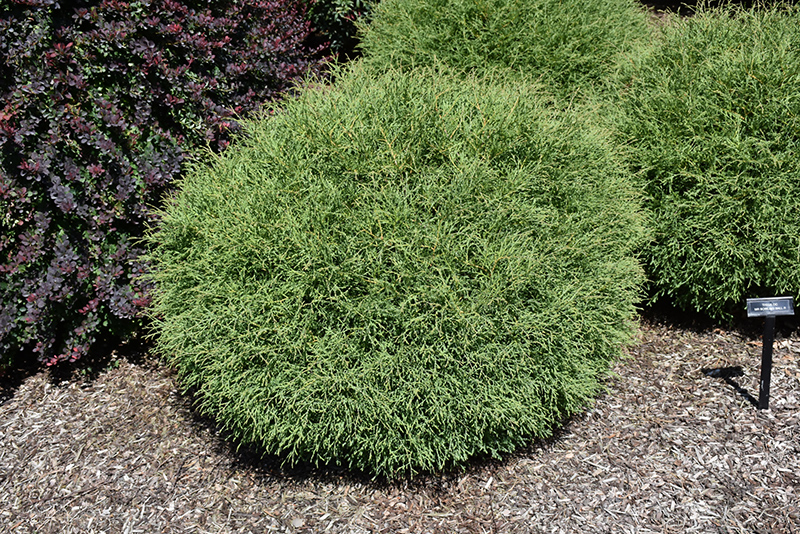30 inches
30 inches


4a
Eastern White Cedar
Mr. Bowling Ball Arborvitae is a dwarf conifer which is primarily valued in the garden for its ornamental globe-shaped form. It has attractive grayish green evergreen foliage. The threadlike sprays of foliage are highly ornamental and remain grayish green throughout the winter.
Mr. Bowling Ball Arborvitae is a dense multi-stemmed evergreen shrub with a more or less rounded form. It lends an extremely fine and delicate texture to the landscape composition which should be used to full effect.
This is a relatively low maintenance shrub. When pruning is necessary, it is recommended to only trim back the new growth of the current season, other than to remove any dieback. It has no significant negative characteristics.
Mr. Bowling Ball Arborvitae is recommended for the following landscape applications;
- Mass Planting
- Rock/Alpine Gardens
- General Garden Use
- Container Planting
Mr. Bowling Ball Arborvitae will grow to be about 30 inches tall at maturity, with a spread of 30 inches. It tends to fill out right to the ground and therefore doesn't necessarily require facer plants in front. It grows at a slow rate, and under ideal conditions can be expected to live for approximately 30 years.
This shrub does best in full sun to partial shade. It prefers to grow in average to moist conditions, and shouldn't be allowed to dry out. It is not particular as to soil type or pH. It is somewhat tolerant of urban pollution, and will benefit from being planted in a relatively sheltered location. Consider applying a thick mulch around the root zone in winter to protect it in exposed locations or colder microclimates. This is a selection of a native North American species.
Mr. Bowling Ball Arborvitae makes a fine choice for the outdoor landscape, but it is also well-suited for use in outdoor pots and containers. It can be used either as 'filler' or as a 'thriller' in the 'spiller-thriller-filler' container combination, depending on the height and form of the other plants used in the container planting. It is even sizeable enough that it can be grown alone in a suitable container. Note that when grown in a container, it may not perform exactly as indicated on the tag - this is to be expected. Also note that when growing plants in outdoor containers and baskets, they may require more frequent waterings than they would in the yard or garden.
